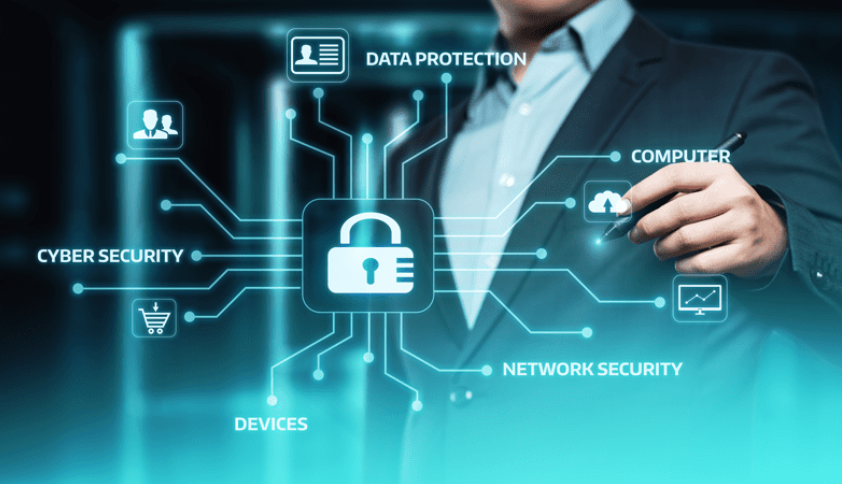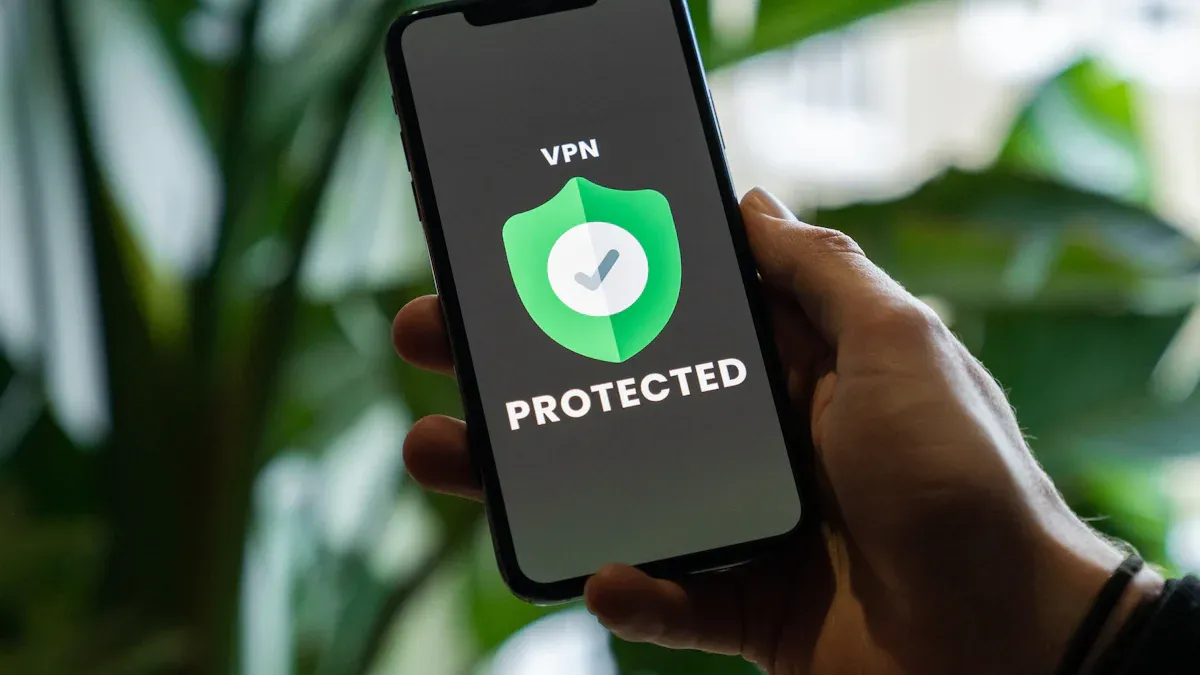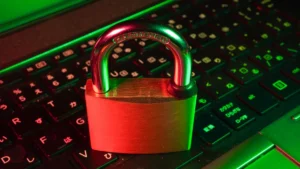
You need strong information security to keep your online life private. When you use devices like Vertu Quantum Flip, you get better information security for all your messages. This helps clients trust that their messages and calls are safe. Clients want secure communication, so you should pick solutions that use quantum encryption. Clients who want the best communication choose devices with AI that protect information security. Clients need to know their messages are safe. Smart clients always look for the newest solutions. Clients care about privacy, so strong information security is important in every message.
Key Takeaways
-
Make strong and different passwords for each account. Turn on multi-factor authentication to keep hackers out.
-
Update your devices and software often. Use device encryption to keep your data safe from people who should not see it.
-
Pick safe ways to talk online, like encrypted messaging apps, secure email, and VPNs. These tools help keep your chats and emails private.
-
Do not share too much personal information online. Check your privacy settings often to control who can see your data.
-
Watch out for cybersecurity threats like phishing, malware, and strange links. Always check messages and do not click on things that look unsafe.
Information Security Basics
Strong Passwords
You need strong passwords to keep hackers out. Many hackers look for weak or reused passwords. Most security problems happen because of bad passwords. Hackers can guess common passwords very fast. Short passwords are easier for hackers to break. If you add a special character, your password gets stronger.
Cybersecurity experts have some tips for strong passwords:
-
Make your password at least 12 characters long.
-
Mix uppercase, lowercase, numbers, and symbols.
-
Do not use words from the dictionary or names.
-
Use a different password for every account.
-
Try a password manager to help you remember passwords.
Tip: A passphrase with random words, numbers, and symbols is easier to remember and much stronger than a simple word.
If you think someone got into your account, change your password right away. Good password habits help keep your information safe. You do not want to be the weak spot in your security.
Multi-Factor Authentication
Multi-factor authentication gives your accounts extra protection. It makes you prove who you are in more than one way. Studies show accounts without it are much easier to hack. Even if someone knows your password, they still cannot get in without the second step.
There are different ways to use multi-factor authentication. Here is a table to compare them:
|
MFA Type |
Description |
Security Level |
Recommended Use |
|---|---|---|---|
|
SMS |
Code sent by text message |
Poor |
Use only if no other option |
|
Authenticator App |
Time-based codes on your phone |
Better |
Most users |
|
Hardware Key |
Physical device like a Yubikey |
Best |
High-value or sensitive accounts |
Turning on multi-factor authentication and using strong passwords helps protect you from online dangers. These steps are the basics of good information security.
Cybersecurity Best Practices
You need to follow good cybersecurity steps to keep your data safe. These steps help protect your privacy from threats. Let’s see what you can do to stay safe.
Device Encryption
Device encryption is very important for cybersecurity. Encryption mixes up your data so only you can read it. If someone takes your phone or laptop, they cannot see your files without your password or key. Many devices already have encryption tools built in. The Vertu Quantum Flip uses quantum encryption, which makes your data even harder to break into. This device also uses AI to give you strong security. You should always turn on encryption to keep your information safe.
Software Updates
Updating your software is another important step for cybersecurity. Hackers look for old software with problems. About 60% of data breaches happen because people do not update their software. When you update, you fix weak spots and stop threats. Set your devices to update by themselves. This easy step is one of the best ways to stay safe.
Secure Wi-Fi
Using secure Wi-Fi is needed for good cybersecurity. Unsecured networks let hackers steal your passwords and private data. Over 60% of Wi-Fi hacking happens on public networks. Always use a strong password for your home Wi-Fi. Do not do sensitive tasks on public Wi-Fi. If you must use public Wi-Fi, a VPN gives you more protection. The Vertu Quantum Flip supports secure connections to help you avoid threats.
Tip: Doing regular security checks and having strong physical security help you find risks and make your cybersecurity better. These steps keep your devices and data safe from both online and real-world threats.
Secure Communication

You need secure communication to keep your privacy safe online. Cybersecurity communications help protect your messages, calls, and emails from hackers. Using strong tools and good habits helps you build trust with others. Privacy and security are important for good communication. Let’s see what makes communication safe and what tools you can use.
Encrypted Messaging
Encrypted messaging is a great way to keep your chats private. These apps use end-to-end encryption. Only you and the person you message can read your chats. Even the app company cannot see your messages. This keeps hackers and spies away from your information.
Security experts say encrypted messaging apps scramble your messages with secret codes. Only the sender and receiver can unlock the messages. Apps like Signal, Wire, and Threema use strong encryption. Signal uses open-source code and does not keep your decryption keys. Wire has post-quantum encryption and does not need your phone number. Threema lets you stay anonymous and uses Swiss privacy laws to protect your data.
Here is a table that compares some popular encrypted messaging apps:
|
Platform |
Key Security Features |
Best For |
|---|---|---|
|
Wire |
End-to-end encryption, no phone number, post-quantum encryption, self-destructing messages |
Enterprise, government |
|
Signal |
Open-source, strong encryption, self-destructing messages, incognito keyboard |
Personal privacy |
|
Threema |
No phone number, always-on encryption, Swiss privacy laws |
Anonymity, privacy |
|
|
End-to-end encryption for chats, voice, video |
Everyday communication |
These apps help you keep your chats private and build trust. Look for features like self-destructing messages and secret chats. These features make your chats even safer.
Tip: Always check who you are messaging. This stops hackers from pretending to be someone you know.
Cybersecurity communications also mean scanning messages for malware. Logging chats helps keep people honest. Using special secure accounts can keep sensitive chats separate. These steps make your chats safer and more private.
Secure Email
Secure email is another important part of private communication. Regular email is easy to read if not protected. Secure email uses encryption to keep your messages safe. You should know what encryption your email provider uses.
Here is a table showing common email encryption protocols:
|
Encryption Protocol |
Purpose and Usage |
Protection Provided |
|---|---|---|
|
TLS |
Encrypts emails during transit between mail servers |
Stops interception and tampering in transit |
|
PGP |
End-to-end encryption using asymmetric keys |
Only the recipient can read the email |
|
S/MIME |
End-to-end encryption and digital signing with certificates |
Confidentiality, sender authentication, and integrity |
|
STARTTLS |
Upgrades plain-text connections to encrypted ones |
Adds security if both servers support TLS |
|
DANE |
Verifies encryption certificates via DNS |
Prevents man-in-the-middle attacks |
Using secure email makes your messages safer. You should use email validation systems like SPF to stop fake emails. Scan attachments for malware and use strong passwords to stay safe. Tell people to get messages from secure portals with strong authentication for extra safety.
Cybersecurity communications in email also mean logging messages for rules and using special accounts for sensitive topics. These steps help keep your emails private and build trust.
VPNs
VPNs, or Virtual Private Networks, are important for secure communication. A VPN makes a private tunnel for your internet traffic. This tunnel hides your IP address and encrypts your data. Hackers and spies cannot see what you do online with a VPN.
Here is a table showing what VPNs do for your communication:
|
Aspect |
Explanation |
|---|---|
|
Encryption & IP masking |
VPNs encrypt your traffic and hide your IP, stopping third parties from tracking your activity. |
|
Provider reliability |
The best VPNs use strong protocols and do not keep logs of your activity. |
|
Security features |
Good VPNs have kill switches, DNS leak protection, and strong encryption. |
|
Limitations |
VPNs do not stop malware or phishing. They cannot make you fully anonymous. |
VPNs make your chats and emails more private, especially on public Wi-Fi. Pick a VPN with a no-logs policy and strong encryption. Free VPNs may track you or have weak security, so they are not good for privacy.
Cybersecurity communications are safer when you use a VPN with other tools. Use VPNs with encrypted messaging and secure email for better safety. This layered approach helps you build trust and keep your chats private.
Note: VPNs are not perfect. They do not protect you from every threat. You still need to watch out for phishing and malware.
Good communication needs strong tools and smart habits. Using encrypted messaging, secure email, and VPNs makes your chats much safer. These steps help you build trust, protect your privacy, and make your cybersecurity communications stronger.
Manage Digital Footprint
Limit Personal Info
You can keep your privacy safe by sharing less personal information online. Many websites ask for things like your birthday, address, or phone number. Always think if you really need to share this information. Cybercriminals look for things like social security numbers, bank details, and even photos or messages from social media. The table below shows what types of personal information are most at risk:
|
Category |
Examples of Personal Information Exploited |
|---|---|
|
Online Shopping Data |
Email, address, phone, credit card details |
|
Social Media Data |
Date of birth, photos, messages, deleted files |
|
Personally Identifiable Information (PII) |
Social security number, medical history, bank account, age |
|
Smartphone Data |
Location, contacts, passwords, apps used |
You can delete old accounts and use secure email services. These steps help you lower your risk and follow data privacy rules.
Privacy Settings
Privacy settings help you control who can see your data. Social media sites collect a lot of your personal information. Some sites, like Pinterest and Reddit, have strong privacy choices. Others, like Facebook and LinkedIn, have tricky settings and share more data. Check your privacy settings often and limit what apps can do. These steps help you control your online life and follow company rules.
Tip: Make your profiles private and turn off location tracking to keep your data safe.
Safe Browsing
Safe browsing keeps you safe from tracking and malware. Keep your browser updated and use search engines that protect your privacy. Do not visit sites without HTTPS and clear cookies often. Ad blockers and VPNs give you more protection. These steps are part of good cyber hygiene and help you follow safety rules. Good cyber hygiene means you stay alert and use tools to keep your data safe.
Good digital hygiene means checking your digital footprint, using strong passwords, and learning about new threats.
Cybersecurity Communications Threats
Every day, you face many cybersecurity threats. These threats try to steal your information and attack your communication. If you know what these threats look like, you can protect yourself. You can also act fast if something bad happens. The most common threats are phishing, malware, and suspicious links. Each threat uses different tricks to hurt your privacy and security.
Phishing
Phishing is a very common cybersecurity threat. Attackers send fake emails, texts, or calls that seem real. They want you to give passwords, click bad links, or share personal details. Many phishing attacks use social engineering to trick people. Smishing uses text messages, and vishing uses fake phone calls. Some attackers use AI to make their messages sound real. You might get urgent messages or offers that seem too good to be true. These threats can cause cyber incidents and data loss.
-
Watch out for these phishing tricks:
-
Quishing: Bad QR codes.
-
Smishing: Fake text messages.
-
Vishing: Phone calls with fake voices.
-
Clone phishing: Real emails copied with bad links.
-
Business Email Compromise: Emails from hacked business accounts.
-
Tip: Always check who sent the message. Never share private information unless you are sure it is safe. Training and learning help you spot these threats.
Malware
Malware is software that hurts your device or steals your data. It spreads through email attachments, downloads, or bad websites. Malware attacks cost a lot of money every year. Ransomware locks your files and asks for money. Other types steal your passwords or watch what you do. Both small businesses and people can get attacked. Malware can make new problems and raise cyber risks for everyone.
|
Cost Aspect |
Estimated Amount / Range |
|---|---|
|
Global ransomware cost |
$40-$50 billion (2024) |
|
Cost per stolen record |
$169 |
|
Small business breach cost |
$120,000 to $1.24 million |
You can lower your risk by updating your software. Use antivirus tools and back up your data often. Fast communication during an incident helps stop more damage.
Suspicious Links
Suspicious links are a big cybersecurity threat. Attackers hide bad links in emails, texts, or social media. These links may look safe but lead to fake sites or malware. Always check links before you click. Look for misspelled words, odd symbols, or short URLs. Some links use numbers instead of names or hide behind QR codes.
-
Hover over links to see where they really go.
-
Do not click links from people you do not know.
-
Check for HTTPS and a padlock, but remember some bad sites look safe.
Note: Always watch for new cyber risks. Report any problems to your security team. Good habits help you stay safe and protect your information.
You keep your privacy safe by using good information security steps and private ways to talk. When you use secure technology and clear ways to talk, you help clients stay safe. Clients want to trust every message and call. You build trust by using things like strong passwords, device encryption, and secure tools for talking. Clients need you to check privacy settings and update software often. You should teach clients about dangers and how to talk safely. The table below shows why clients need these steps for trust and safety.
|
Strategies for Clients |
How They Build Trust and Communication |
|---|---|
|
Strong passwords |
Stop hackers from breaking into accounts, keeping communication safe for clients |
|
Device encryption |
Protects client data, making communication private and secure |
|
Secure communication tools |
Ensure only clients and trusted contacts can read messages |
|
Regular updates |
Fix weak spots, keeping clients’ communication safe |
|
Privacy settings |
Give clients control over who sees their communication |
-
Always use these steps to help clients keep their talks private.
-
Clients trust you more when you use secure ways to talk and teach them about dangers.
-
You make talking safer for clients by using the best steps.
Remember: Keep watching for risks and use secure technology like Vertu Quantum Flip to help you and your clients keep personal data safe and build trust in every talk.
FAQ
What is the best way for clients to keep their information private online?
You need to use strong passwords and device encryption. Secure communication tools help keep your data safe. Update your software often and check privacy settings. These steps protect your messages and keep your information private.
What should clients do if they think their account is hacked?
Change your password as soon as you can. Turn on multi-factor authentication for more safety. Scan your device for malware right away. Tell your contacts about the problem so they know. You can also ask customer support for help.
What makes encrypted messaging important for clients?
Encrypted messaging keeps your chats safe from hackers. Only you and the person you message can read the chat. These apps use strong encryption to protect your messages. Pick apps that have strong security features.
What steps help clients avoid phishing and suspicious links?
Always check messages before you click any links. Look for signs that emails or texts are fake. Never share your password with people you do not know. Stay alert to avoid most phishing attacks.
What benefits do clients get from using Vertu Quantum Flip for privacy?
Vertu Quantum Flip gives you quantum encryption and AI security. This device keeps your calls and messages private. You get a luxury design and strong protection. You also get support and special benefits.







